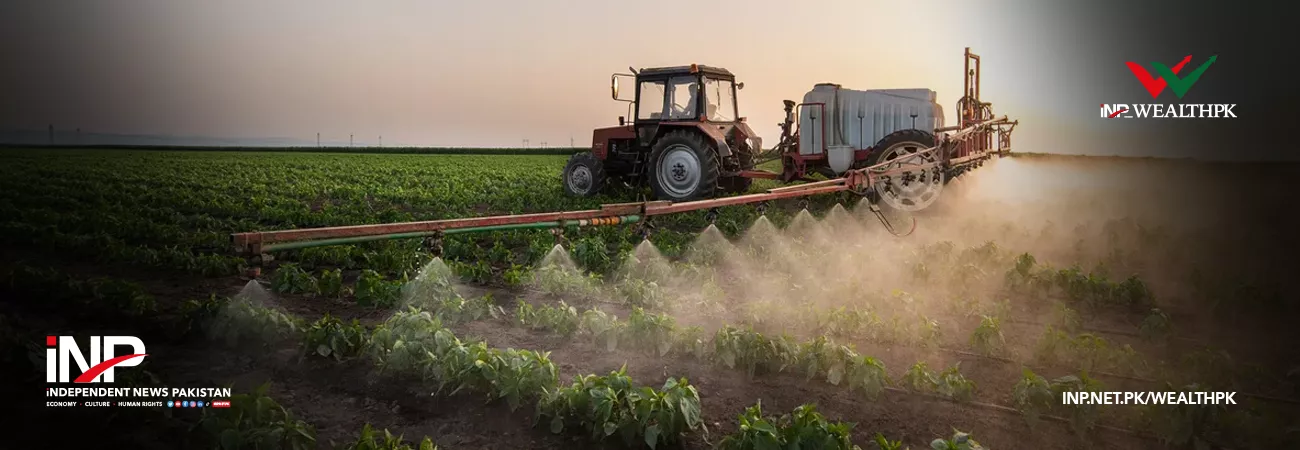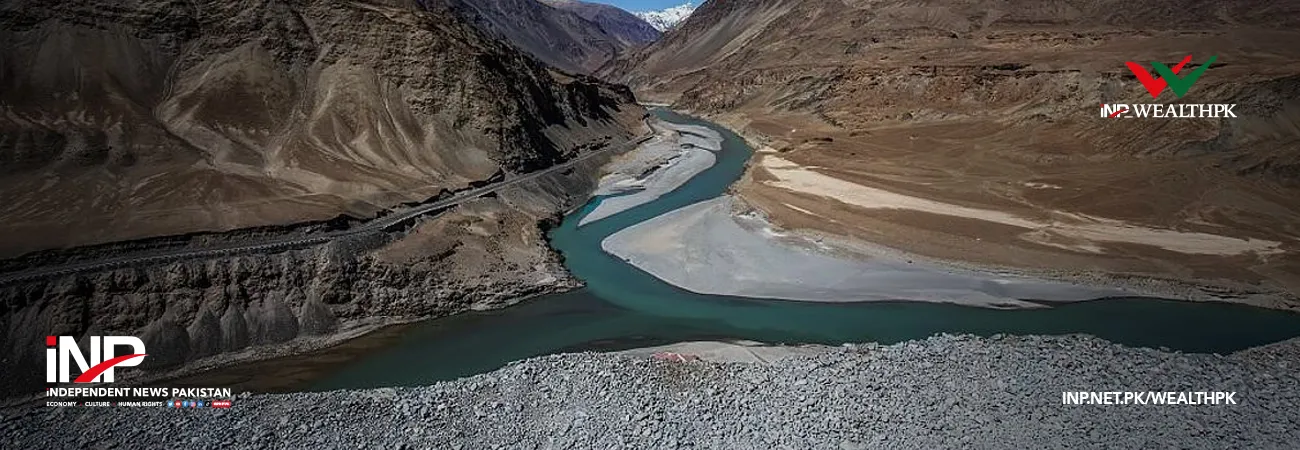INP-WealthPk
Arooj Zulfiqar
The agriculture sector in Pakistan is facing significant challenges in its total factor productivity (TFP), reports WealthPK. “Pakistan is an agrarian economy, with agriculture contributing significantly to the country's GDP and providing livelihood to a large percentage of the population. However, the total factor productivity in agriculture has been declining at a concerning rate,” said Nadeem ul Huq, Vice Chancellor of Pakistan Institute of Development Economics (PIDE), while talking to WealthPK.
“According to the Pakistan Bureau of Statistics, the agriculture sector's contribution to the GDP is 22%, which indicates the importance of this sector in the country's economy. However, the sector has been facing challenges; slow adoption of modern technology and practices, water scarcity, soil degradation, and climate change are some of the primary factors contributing to the declining TFP.’’
Slow adoption of modern technology
Farmers in Pakistan continue to rely on traditional farming methods, which are less efficient and yield poor results, said Muhammad Alamgir Chaudhry, Chief Executive Officer of National Productivity Organization. “The government has taken steps to introduce modern technology and practices, but the adoption rate is slow due to some factors such as lack of awareness and limited access to credit,” he added.
Water scarcity
Water scarcity is a severe issue in Pakistan and it has negatively impacted the agriculture sector, as farmers face difficulties in irrigating their crops and maintaining their yields, said Deputy Director of Pakistan Council of Research and Water Resources (PCRWR) Miss Saiqa Imran while talking to WealthPK.
According to the Pakistan Council of Research and Water Resources, the country's water availability per capita has decreased from 5,260 cubic meters in 1951 to an alarming level of 908 cubic meter per annum.
Soil degradation
“Loss of fertile soil, biodiversity as well as traditional seeds and knowledge constitute a grave threat to our future food security,” said Dr Muhammad Hanif, senior scientific officer at the National Agriculture Research Centre (NARC). “In the absence of significant soil conservation measures (such as decarbonization, erosion, and chemical pollution), we will not only suffer nutritional deterioration and loss of vital trace minerals, but may also run out of arable land,’’ he added. According to the Food and Agriculture Organization (FAO), about 45% of the country's total land area is affected by soil erosion and degradation, thus reducing yields and productivity.
Climate change
“Climate change is severely affecting agricultural productivity in Pakistan. The country is experiencing more frequent and severe droughts and floods, negatively impacting yields and leading to crop failures. Climate change has also increased pest attacks, which has affected crop quality and productivity,” said Dr Muhammad Hanif. “To increase the agriculture sector's productivity and contribution to the economy, the government and stakeholders must take steps to address these challenges and introduce sustainable practices,’’ he added.
Credit: Independent News Pakistan-WealthPk













